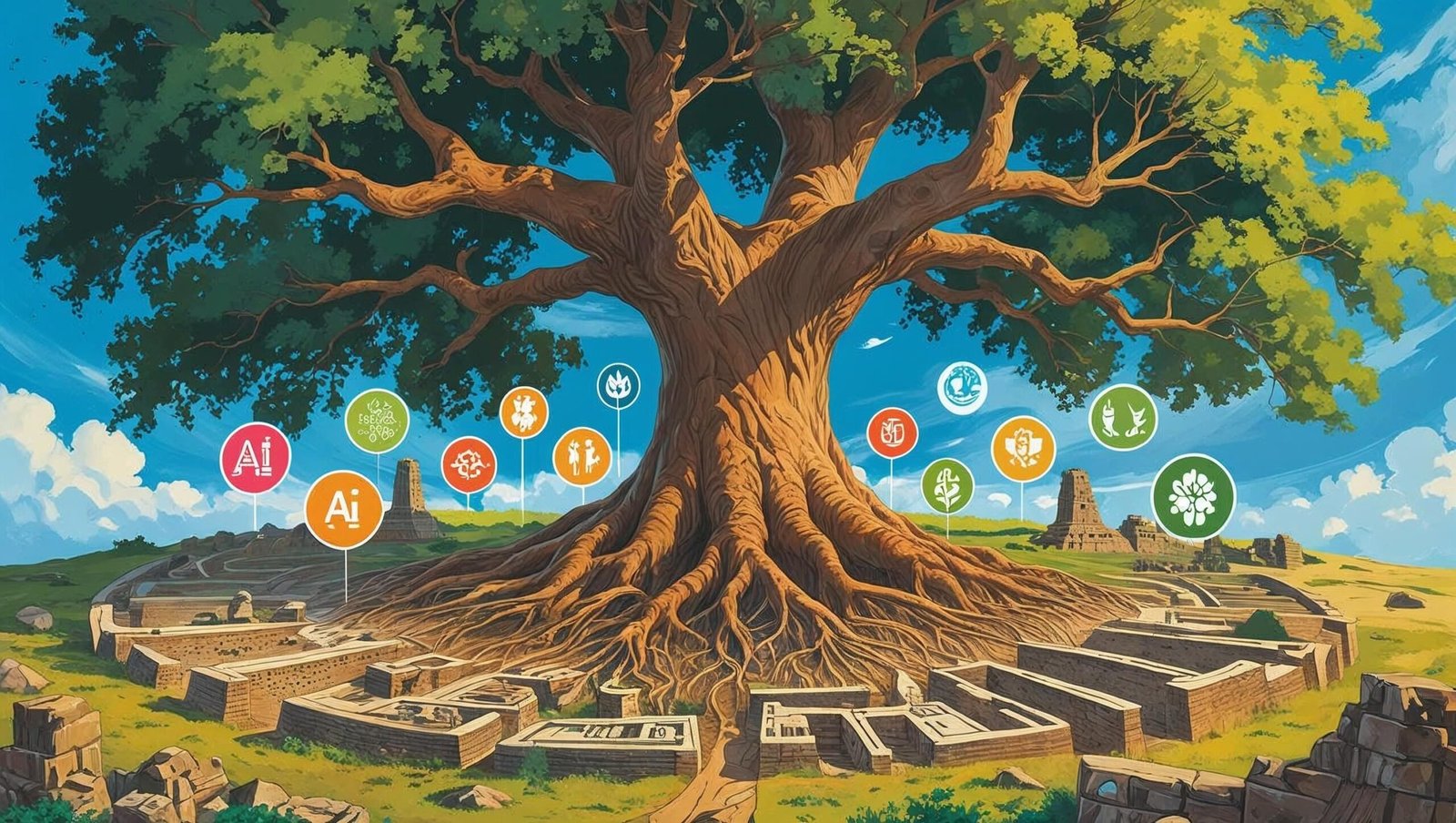Abundance by Ezra Klein and Derek Thompson: 7 Shocking Truths That Will Radically Transform Your Worldview
In a world dominated by fear, scarcity, and pessimism, Abundance by Ezra Klein and Derek Thompson stands out as a clarion call for hope. This thought-provoking book challenges deep-rooted beliefs about what is possible, offering readers an invigorating journey into the realm of opportunity, growth, and reinvention. Whether you are a policy maker, a futurist, or simply a curious thinker, this book delivers compelling arguments that shift how we perceive progress.
Through a masterful synthesis of politics, economics, technology, and culture, Abundance by Ezra Klein and Derek Thompson posits that we’re no longer limited by material scarcity—but by institutional inertia and psychological pessimism. In this extensive review, we break down the seven most shocking truths the authors reveal and why this book is indispensable in 2025 and beyond.

1. The Scarcity Mindset Is a Cognitive Prison
Abundance by Ezra Klein and Derek Thompson begins with a powerful thesis: we are prisoners of an outdated psychological model. The scarcity mindset—once essential for survival—now limits our imagination and impedes societal progress. This inherited mentality affects everything from how we vote to how we innovate.
The authors argue that despite advancements in wealth, productivity, and access, many still behave as if we live in a world of zero-sum conflict. Scarcity thinking fuels divisiveness, economic stagnation, and political paralysis. The book invites readers to recognize the invisible shackles of this mindset and to break free from its grasp.
2. Technological Abundance Has Outpaced Our Institutions
One of the core arguments in Abundance by Ezra Klein and Derek Thompson is that while technology has evolved exponentially, our political and social institutions have failed to keep up. The internet, AI, clean energy, and medical breakthroughs have created a world of nearly limitless tools—but the systems meant to govern them are rigid, outdated, and slow.
The book highlights how technological abundance becomes paradoxically useless if channeled through obsolete bureaucracies and regulatory bottlenecks. The authors argue for agile governance models that evolve alongside innovation. Without institutional adaptation, the benefits of technological abundance remain frustratingly unrealized.
3. The Vetocracy: Why Abundance Gets Vetoed
A recurring concept in Abundance by Ezra Klein and Derek Thompson is “vetocracy”—a system where too many players have the power to say no, and too few can say yes. In democracies, this manifests as gridlock, endless reviews, and stalled legislation.
This structural flaw neutralizes abundance before it can be actualized. For instance, cities with housing shortages often have the resources and land to solve the problem but are stifled by zoning laws, NIMBYism, and litigation. The book urges readers to rethink how power is distributed—and how it could be better aligned with abundance-minded governance.
4. The Illusion of Decline: Why We’re Not Really Falling Behind
Abundance by Ezra Klein and Derek Thompson dismantles the prevailing narrative that the world is in a downward spiral. Through rich data and historical comparisons, the authors prove that by almost every objective metric—health, education, longevity, poverty—the world has improved dramatically.
Yet, the human brain is evolutionarily wired to prioritize negative information. Combined with a media ecosystem that profits from outrage, the illusion of decline persists. This disconnect, the authors argue, weakens public will and undermines collective action. The book provides strategies to cultivate a more balanced and evidence-based worldview rooted in reality, not sensationalism.
5. Economic Abundance Demands a New Social Contract
What good is abundance if it’s hoarded by a few? Abundance by Ezra Klein and Derek Thompson addresses the widening inequality gap and calls for a new economic paradigm—one based on distribution, access, and dignity rather than GDP alone.
The authors propose bold ideas like Universal Basic Income (UBI), public tech infrastructure, and post-scarcity models of labor. They argue that economic abundance should lead to liberation, not exploitation. By framing abundance as a public good—not just a private gain—the book advocates for a society where prosperity is a shared experience.

6. Environmental Abundance Requires Moral Discipline
A significant portion of Abundance by Ezra Klein and Derek Thompson is devoted to the environmental crisis. While acknowledging the dangers of climate change, the authors reject defeatism. They argue that abundance thinking can fuel ecological restoration through innovation, renewable energy, and scalable climate tech.
However, they caution that without moral and political discipline, technological solutions can worsen existing disparities. For example, carbon credits and geoengineering could disproportionately benefit wealthy nations if not regulated equitably. The authors advocate for a moral framework where environmental abundance is accessible, just, and sustainable for all.
7. Human Flourishing Is the Ultimate Goal of Abundance
The book concludes on a deeply philosophical note: abundance is not merely a material condition but a moral one. Abundance by Ezra Klein and Derek Thompson envisions a society where people flourish—not merely survive. In such a society, art, relationships, purpose, and mental health are prioritized alongside innovation and growth.
This requires moving beyond productivity obsession toward meaningful living. Abundance should free individuals from soul-draining tasks and give them the space to reflect, connect, and contribute. The authors challenge us to imagine what life could look like when human flourishing—not just economic output—is the ultimate metric of success.
Beyond the Book: The Cultural Impact of Abundance
It’s one thing to read a book filled with theories and proposals, but quite another to witness its ideas influencing real-world discourse. Since its release, Abundance by Ezra Klein and Derek Thompson has ignited conversations across think tanks, university classrooms, political campaigns, and even grassroots community planning boards. The book doesn’t just diagnose—it provokes.
One of the central reasons Abundance by Ezra Klein and Derek Thompson resonates so widely is its interdisciplinary nature. It refuses to be boxed into a single category—whether economics, political theory, sociology, or psychology. By blurring these lines, it mirrors the complexity of the world we live in and encourages a systems-thinking approach.
The cultural ripple effect of this work has already been seen in online discourse, where its core messages—such as “designed abundance” and “post-scarcity governance”—are entering mainstream vocabulary. Influencers, futurists, and journalists often cite its ideas while advocating for systemic overhauls in housing, education, or environmental justice.
Rethinking Education Through the Lens of Abundance
A particularly intriguing application of Abundance by Ezra Klein and Derek Thompson lies in education. Traditionally, education systems are built on the logic of scarcity—limited seats, competitive exams, and rigid credentials. The book challenges this deeply entrenched approach by suggesting that knowledge, like data and computing power, is no longer a scarce resource.
In an abundant paradigm, education should be adaptive, lifelong, and universally accessible. The authors suggest that modern education should emphasize curiosity over compliance, creativity over conformity. When learners are no longer treated as products of a pipeline but as citizens of a learning ecosystem, innovation flourishes.
They highlight models such as open-source curricula, AI-assisted tutors, and community-based learning labs as examples of how educational abundance can reshape societal outcomes. Abundance by Ezra Klein and Derek Thompson is, therefore, not only a call to fix broken systems but to redesign them from the ground up.

Mental Health and the Abundance Crisis
Perhaps one of the most underexplored yet vital themes in Abundance by Ezra Klein and Derek Thompson is the paradox of mental health in an age of plenty. While material conditions have improved in many parts of the world, rates of anxiety, depression, and social isolation are surging. How can abundance coexist with emotional depletion?
The authors suggest that abundance without purpose breeds disconnection. When basic needs are met, existential questions about meaning, community, and identity become more pressing. They argue that we must invest in emotional abundance—spaces, policies, and technologies that nourish well-being, not just productivity.
They discuss the emerging science of happiness, digital detox movements, and community-centric urban planning as counterbalances to the isolating aspects of modern abundance. By doing so, Abundance by Ezra Klein and Derek Thompson expands the definition of prosperity beyond dollars and gadgets.
Abundance and Migration: A Controversial Frontier
In a bold yet controversial chapter, Abundance by Ezra Klein and Derek Thompson explores how abundance intersects with migration policy. They argue that labor, like data or capital, thrives when it is mobile. Restrictive borders and xenophobic policies are seen as modern forms of scarcity logic—designed not to manage risk, but to hoard opportunity.
The authors propose a more humane and strategic model of global labor exchange, one where migrants are seen as contributors to abundance rather than threats to it. They also highlight examples of cities and countries that have successfully integrated diverse populations while boosting innovation and GDP.
Yet, they are careful not to ignore the backlash such ideas might provoke. The book invites readers to face uncomfortable questions: Can abundance truly exist in a world where movement is criminalized? Can any nation flourish in isolation?
By framing immigration through the lens of abundance, the book reframes one of the most divisive issues of our time as a question of design and intention, not inevitability.
Redefining Public Spaces for an Abundant Society
Abundance by Ezra Klein and Derek Thompson also extends its reach into the built environment—parks, libraries, public transit, and shared infrastructure. In a scarcity-based model, public goods are seen as burdens on the budget. But from an abundance mindset, they’re viewed as investments that yield exponential social returns.
The authors reference cities that have radically reimagined public space—like Singapore’s green urbanism, or Copenhagen’s cycling infrastructure. These spaces not only improve environmental outcomes but also reduce inequality and foster a sense of belonging.
A public bench, a free Wi-Fi park, or a 24/7 learning hub may seem like small details, but in the framework of Abundance by Ezra Klein and Derek Thompson, they are potent symbols of a society that prioritizes human flourishing over fiscal minimalism.
Digital Abundance and the Ethics of Attention
In the digital realm, abundance can be overwhelming. We have infinite content, endless scrolling, and unlimited access—but our attention remains finite. The book dedicates significant attention to this contradiction, exploring how algorithms and monetized engagement hijack our cognitive bandwidth.
Klein and Thompson argue for a new form of digital stewardship. Platforms should be designed to amplify well-being, not just clicks. They propose policy tools such as ethical design standards, public-interest algorithms, and digital time banks.
Here, Abundance by Ezra Klein and Derek Thompson confronts the darker side of abundance—one where freedom can morph into fragmentation. Only through conscious governance and cultural maturity can we convert digital overload into digital empowerment.

Leadership in the Age of Abundance
Leadership is another area that the authors interrogate with depth. In scarcity-driven models, leadership is about control, efficiency, and containment. But Abundance by Ezra Klein and Derek Thompson presents a new archetype of leadership—one that thrives in ambiguity, fosters collaboration, and elevates imaginative capacity.
They reference leaders in business, politics, and education who are practicing “abundant leadership”—thinking beyond silos, budgeting for long-term impact, and inviting diverse perspectives. This model embraces uncertainty not as a threat but as a resource.
The implication is clear: in an age of abundance, leadership must evolve from managing constraints to orchestrating possibilities.
Why This Book Matters More Than Ever
In 2025, the world is teetering between breakdown and breakthrough. Polarization is high, trust is low, and progress often feels stalled. Yet, the tools, talent, and knowledge required to solve our greatest challenges already exist. This is the central paradox that Abundance by Ezra Klein and Derek Thompson both identifies and attempts to resolve.
It is a book for our era—not because it offers a silver bullet, but because it dares to imagine new pathways. Its optimism is not naive—it’s strategic. Its critique is not cynical—it’s constructive.
As we look to the decade ahead, we will need more than disruption. We will need integration. We will need more than innovation. We will need transformation. And most of all, we will need to abandon the illusion that there’s not enough to go around.
With its rich tapestry of insight, evidence, and possibility, Abundance by Ezra Klein and Derek Thompson shows us how.
Writing Style and Impact
Stylistically, Abundance by Ezra Klein and Derek Thompson is eloquent yet accessible. It combines hard data with human stories, theory with practice, and criticism with optimism. Klein brings his political depth while Thompson adds journalistic flair. The duo’s synergy results in a narrative that is urgent, nuanced, and often profound.
The book does not preach from an ivory tower—it dialogues with its readers, respecting their intellect while encouraging them to think bigger, act bolder, and hope harder.
Who Should Read This Book?
-
Visionary entrepreneurs looking to build for the future
-
Policy makers open to reform and reinvention
-
Students of political science, economics, and sociology
-
Climate activists seeking practical optimism
-
Citizens exhausted by stagnation and looking for renewal
If you’re craving intellectual rigor, moral clarity, and imaginative solutions, Abundance by Ezra Klein and Derek Thompson is an essential read.

Critiques and Caveats
While Abundance by Ezra Klein and Derek Thompson offers a powerful framework, it’s not immune to critique. The authors sometimes overestimate institutional willingness to change. Their proposed reforms, while compelling, may face fierce resistance in polarized environments.
Some critics may also view the book as utopian—especially its assumptions about technological neutrality or political goodwill. However, the authors do acknowledge these risks and present them as challenges, not disqualifiers.
FAQs on Abundance by Ezra Klein and Derek Thompson
Q1. Is the book optimistic or realistic?
A: It blends both. The authors offer hopeful visions grounded in data and historical precedent, without ignoring systemic challenges.
Q2. Does the book offer policy solutions?
A: Yes. It presents a range of proposals from economic models to political reforms, grounded in evidence and feasibility.
Q3. Is it politically biased?
A: The authors lean progressive but remain pragmatic. The book respects opposing views and centers on results over ideology.
Q4. Can casual readers understand it?
A: Absolutely. The book is rich yet readable, designed for general audiences without sacrificing depth.
Q5. Is it relevant in 2025?
A: More than ever. As societies grapple with AI, climate, and inequality, this book offers a powerful lens to reframe the conversation.
Conclusion: The Call to Choose Abundance
In a world trained to expect less, Abundance by Ezra Klein and Derek Thompson dares to envision more. It is a manifesto for anyone tired of incrementalism and ready to embrace transformational change. The authors challenge us to question not just what is, but what could be—and to act accordingly.
This isn’t just a book. It’s a mental reset, a cultural blueprint, and a moral argument all rolled into one. Whether you’re a skeptic or a believer, reading Abundance by Ezra Klein and Derek Thompson will stretch your imagination, sharpen your reasoning, and, most importantly, expand your hope.
👉 For more honest and expansive reviews like this, visit shubhanshuinsights.com.
💬 What do you think about the ideas in Abundance by Ezra Klein and Derek Thompson? Are they visionary or unrealistic? Join the debate in the comments below!